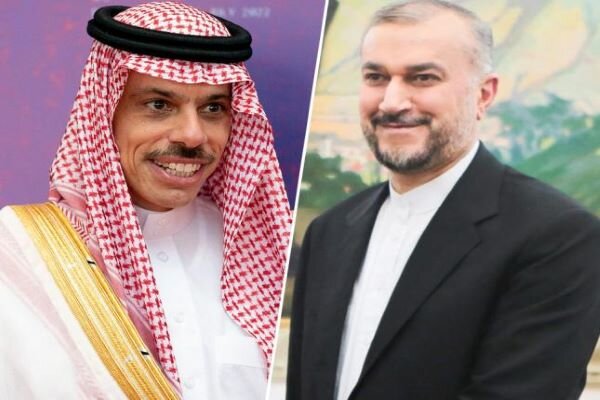Saudi FM to visit Iran on Saturday

TEHRAN - Saudi Arabia’s Foreign Minister Prince Faisal bin Farhan Al Saud will visit Iran on Saturday amid warming relations between the two important regional countries, official sources said on Thursday.
The top Saudi diplomat will hold talks will Iranian officials during his Saturday trip to Tehran, according to sources.
Earlier, some sources had raised the possibility that Saudi Arabia will reopen its embassy in Tehran during bin Farhan’s visit to Iran.
Iran reopened its embassy in Riyadh on June 6 and its consulate general and representative office in OIC in Jeddah on June 7.
On March 10, Iran and Saudi Arabia agreed to reestablish diplomatic ties after three days of intensive talks brokered by China.
Prior to the March 10 agreement, Iraq and Oman had hosted several rounds of talks between Iran and Saudi Arabia.
Saudi Arabia cut ties with Iran after students attacked the country’s embassy in Tehran in January 2016 in protest to the execution of opposition Shia cleric Nimr Baqir al-Nim and 46 other dissidents.
The attack on the embassy was condemned by top Iranian officials, including Leader of the Islamic Revolution Ayatollah Ali Khamenei.
Following the March 10 agreement, Iran and Saudi Arabia issued a joint statement in which the sides agreed to respect each other’s national sovereignty and avoid and kind of interference.
They also agreed to implement a security cooperation agreement signed in April 2001 and another accord reached in May 1998 to boost economic, commercial, investment, technical, scientific, cultural, sports, and youth affairs cooperation.
Since deciding to reestablish ties, the Saudi foreign minister and his Iranian counterpart Amir Abdollahian have met twice: first in Beijing on April 10 and then in Cape Town, South African, on June 2. The Saturday meeting with be third in two months.
“Signal of peace and cooperation"
A former diplomat says the reopening of Iranian diplomatic missions in Saudi Arabia sends "signal of peace and cooperation" to the region and the world as well.
In an interview with the Press TV website on June 7, Sabah Zanganeh, who served as Iran's ambassador to the Jeddah-based OIC, hailed the restoration of diplomatic ties between Tehran and Riyadh.
He said the reopening of Iran’s diplomatic missions in Saudi Arabia is a step towards closer partnership between the two countries that sends a signal of peace and cooperation to the region and the wider world.
“Iran-Saudi normalization can greatly impact the region as it sends a signal to countries within the orbit of Saudi Arabia, particularly those in the Arabian Peninsula, to seek friendship with Tehran and avoid decisions that might displease the country,” the former diplomat stressed.
He said the reopening of the diplomatic missions will be a “stepping stone” for the expansion of ties between the two sides in the areas of economy, security and culture, etc.
Zanganeh said the rapprochement can pave the way for a regional peace drive and help end small or big conflicts, particularly in Yemen and Syria.
“The rapprochement between Iran and Saudi Arabia has so far helped ease tensions in Yemen and cemented efforts to end the suffering of people in the Arab world’s poorest nation (Yemen). Now we can expect a full-fledged ceasefire in the country,” he said.
These turn of events, the former diplomat added, can help expedite Syria’s return to the Arab fold, which will greatly help the war-torn country’s economy.
Iran-Saudi détente comes amid the intense regional push for peace and reconciliation with many countries queuing up to restore or upgrade ties with the Islamic Republic in recent months.
This regional diplomatic drive has caused alarm in Washington and Tel Aviv.
A day after the reopening of the Iranian embassy, U.S. Secretary of State Antony Blinken held wide-ranging talks with Saudi Crown Prince Mohammad bin Salman in Jeddah, making a renewed push for Riyadh-Tel Aviv normalization that Saudi Kingdom has already ruled out.
Asked if Saudi Arabia might succumb to pressure from the U.S. and Israel, Zanganeh said Riyadh resisted pressure from former U.S. president Donald Trump to normalize with Israel and he doesn’t see any reason to believe things would change now.
"Saudi Arabia has its own reservations when it comes to Israel. The Saudi leaders describe themselves as custodians of the two Holy Mosques so they can’t easily make the decision to openly befriend the Israeli regime. Saudi Arabia is not the UAE or Bahrain,” he commented.
